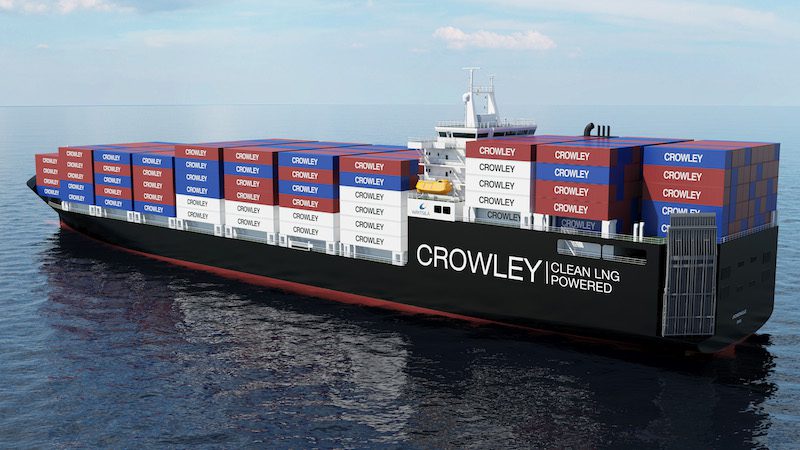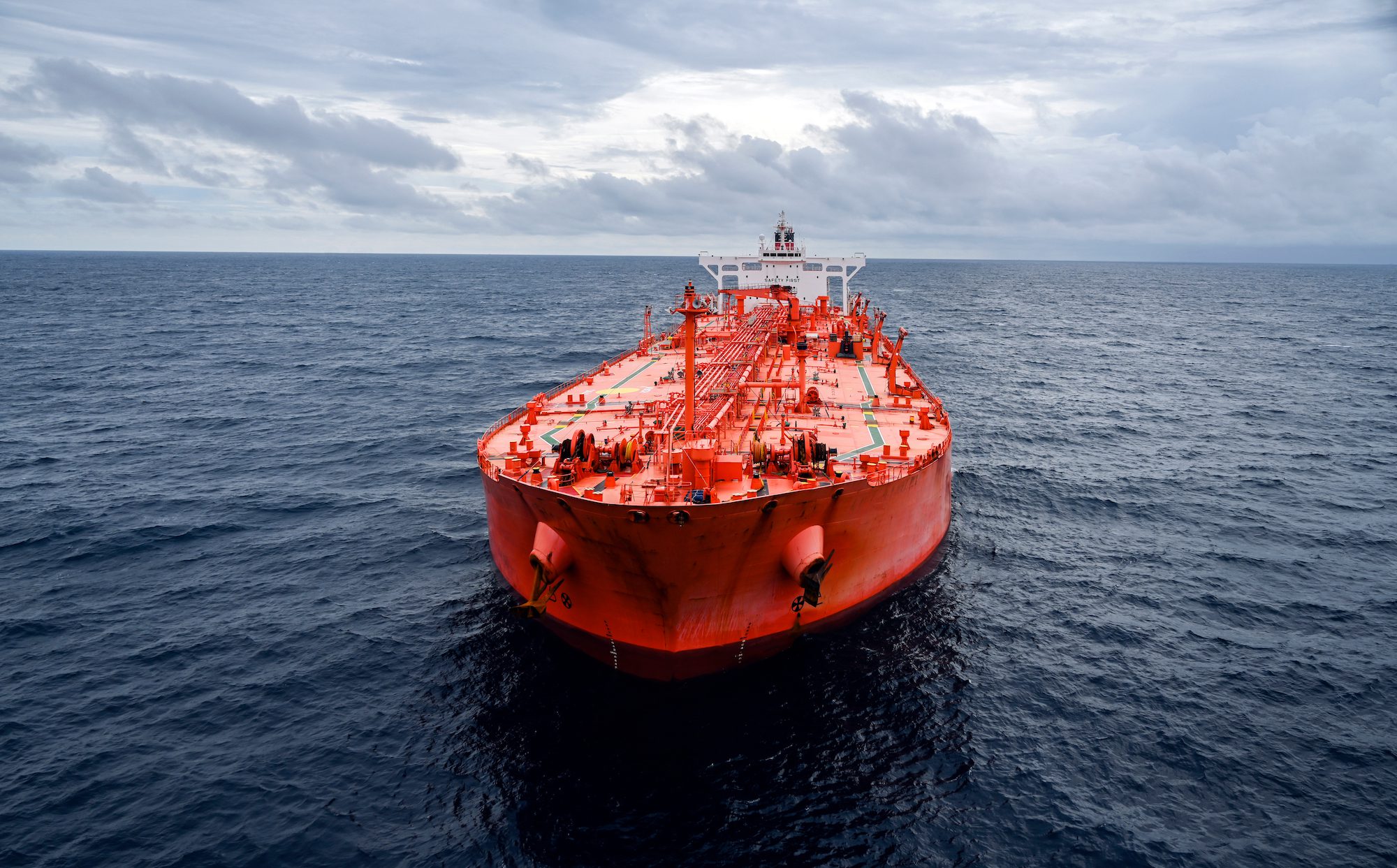An artist’s rendering of Crowley’s new Commitment-Class LNG ConRo Vessel. Image (c) Crowley Maritime Corp.
 By Henning Gloystein and Jonathan Saul
By Henning Gloystein and Jonathan Saul
LONDON (Reuters) – Natural gas has started to challenge oil as the dominant transport fuel with companies building gas-powered ships and installing networks of service stations on water and land.
The expectation of cheaper gas and tighter environmental regulation have created demand for a cleaner alternative to the oil-based fuels that have so far dominated the transport world.
Although European and Asian liquefied natural gas (LNG) prices are currently high, trading at almost $20 per million British thermal units (mmBtu) in Asia and around $10 per mmBtu in Europe because of booming demand, analysts expect prices to drop substantially later this decade when new production rises.
Germany, Singapore and the Netherlands are among the countries investing in natural gas transport hubs while companies including Royal Dutch Shell, Gazprom and Total, are also developing LNG fuel infrastructure.
Germany is making its first move into LNG for transport after Bomin Linde LNG signed a deal in January to supply ferry firm AG EMS and it is now building two LNG bunker terminals in Hamburg and Bremerhaven, due to start operations in 2015.
“Supplying their ferries with LNG makes AG EMS a pioneer in Germany and sends a clear signal that this low-emission propulsion system has arrived here,” said Ruben Benders, managing director at Bomin Linde LNG.
In the Belgian port of Antwerp, Europe’s second largest, the harbour authority says there are “all kinds of initiatives” through which the use of LNG as fuel for shipping is encouraged.
At Rotterdam, Europe’s biggest port, LNG also plays an increasing role in transport as the Gate LNG import terminal has begun supplying local river vessels and port tugs, as well as sending it on for use in the Baltic Sea where LNG is also seeing a pick-up in the marine sector.
In Asia, Singapore has invested in LNG bunkering capacity in anticipation of rising demand from large ships.
Singapore’s motivation to enter the gas for transport sector is driven by the expectation of huge growth in China, currently still a small user of natural gas, but where new regulation is aimed at shifting the power generation sector from coal to gas and the transport sector from oil towards more gas use.
Energy consultancy Wood Mackenzie says global gas demand in the transport sector could grow from under 5 billion cubic metres (bcm) in 2012 to over 160 bcm by 2030, which would be equivalent to two years’ worth of current British gas demand or around 3 million barrels of oil.
“Gas has traditionally played a niche role in global transport but it is now garnering greater attention,” said Noel Tomnay, head of research at Wood Mackenzie.
“Oil and gas price differentials are now making investment in gas re-fuelling infrastructure worthwhile and… increased environmental restrictions on emissions are encouraging wider global uptake.”
Various new regulations on sulphur emissions in the shipping sector will come into place for much of the North and Baltic Sea as well as the U.S. and Canada in 2015, which has driven interest in alternative fuels to diesel.
TRUCKS AND TRAINS
In North America, LNG is also gaining traction on land as a shale gas boom has led to a 50 percent drop in U.S. gas prices since 2008, making it competitive with oil in the transport sector.
Shell and TravelCenters of America are developing a network of LNG truck fuel stations that will allow U.S. coast-to-coast LNG-fueled road transport within a few years.
“Gas is cleaner and gas is cheaper – at least for now,” said Bruce Carlton, president and chief executive of the U.S. National Industrial Transportation League, a trade association.
“We are seeing a lot of attention being given to conversions to gas/LNG in the USA… Rail is probably a bit behind, but very interested in it as well,” he said.
Tucker Gilliam of U.S. transport and logistics group Crowley Liner Services, whose firm has ordered two LNG-powered vessels to operate between the U.S. and Puerto Rico, said LNG for transport would gain further traction.
“As more is invested in infrastructure to produce and deliver the fuel, there will be greater opportunities for wider scale adoption,” he said. He added that for Crowley, the driving force were “significant environmental benefits”.
© 2014 Thomson Reuters. All rights reserved.

 Join The Club
Join The Club











